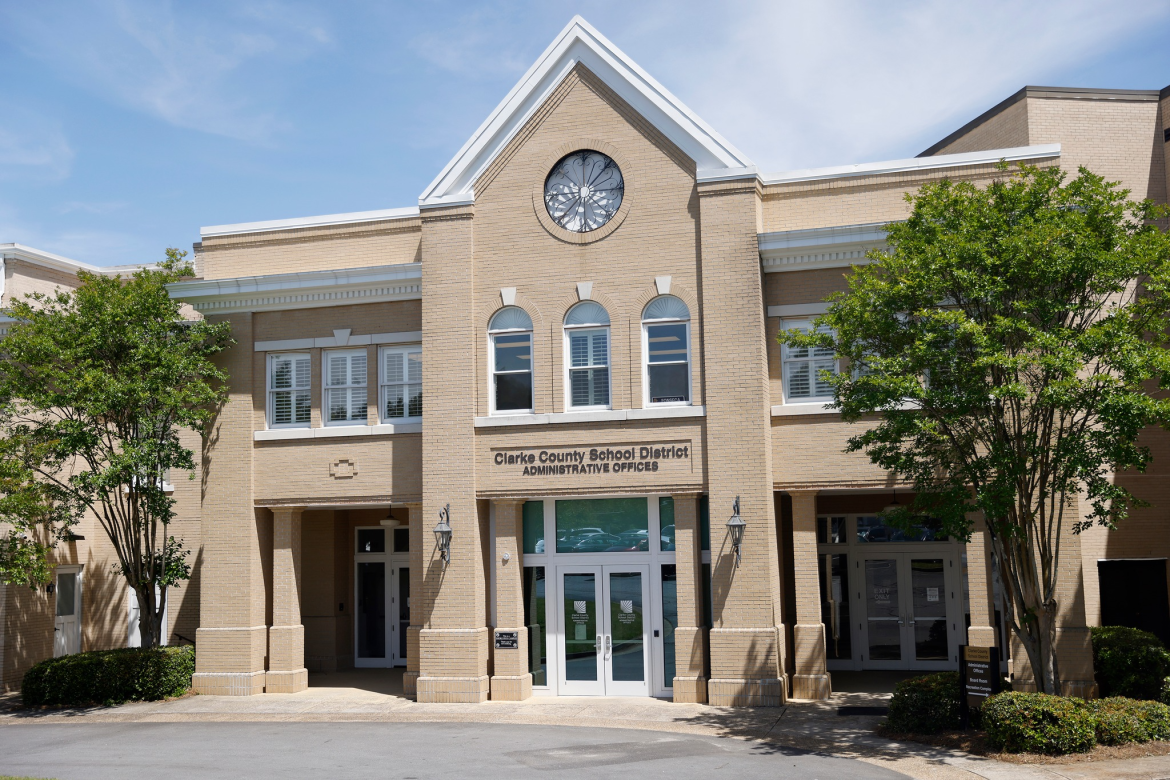The Clarke County School District Board of Education Administrative Offices, located at 595 Prince Ave. are shown. District 5 representative Tim Denson has been working to find solutions to change the CCSD buses to a more sustainable option. “We have a sustainability committee that’s been created (and) one of our goals and focuses is to try to move our school bus fleet away from a fossil fuel-using bus fleet. Right now, the only real option that’s available is electric buses,” Denson said. Photo fair use of the CCSD
The Clarke County School District Board of Education held its first meeting of the 2024-25 school year on Aug. 8.
The Clarke County School District Board of Education met for their first meeting of the 2024-25 school year at the CCSD Administrative Offices, located at 595 Prince Ave., on Aug. 8 at 7:00 p.m. to discuss multiple topics including the CCSD budget and possible electric of fossil fuel bus purchases.
The first item discussed on the consent agenda, a list of policies board members want to discuss in detail before voting on, was securing new buses. BOE District 7 representative Dr. LaKeisha Gantt was apprehensive about voting for new buses because of the opportunity for electric buses in the future.
“I want to support getting most of these buses, but I wonder if there can be a compromise with maybe a pilot of one or two (electric) buses,” Gantt said. “I know it’s not practical for us to go and replace our whole fleet of buses (but) with sustainability it is critical, and the district has to make hard choices.”
Ultimately, the BOE voted to table the decision, moving it to be discussed at the Sept. 12, meeting. The move was passed with a 6-2 vote due to concerns about the environmental impacts non-electric buses would have.
“We’ve been discussing this for a while and I’m very concerned that we were going to be making the largest bus purchase we’ve made in years (and) it was gonna be propane buses which have even more carbon emissions than diesel does,” BOE District 5 representative Tim Denson said. “Those buses usually (have) a 20-year life cycle and I think that we’re already behind the curve of making these changes when we look at climate change and what’s happening.”
